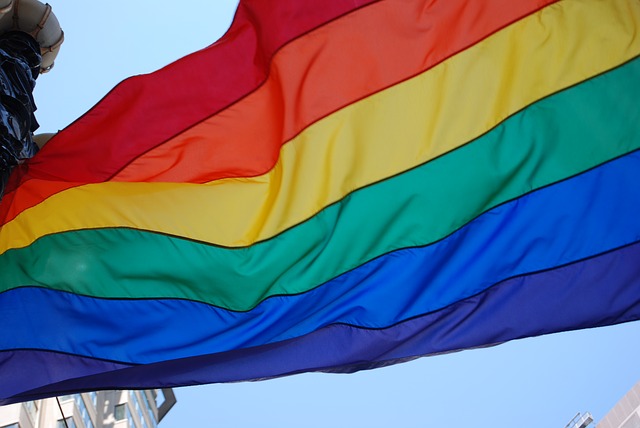—Bernadette Barton
Like many in the nation, I woke up on Sunday, June 12 to the news that there had been a mass shooting at a gay nightclub in Orlando. June is Pride month, and we are only two weeks away from the first anniversary of the Supreme Court decision that legalized same-sex marriage.
Taking in and grieving all the tragic world incidents (ISIS sex slaves burned to death publicly, refugees drowning in Mediterranean, untouched rape kits, the rising popularity of incest porn) shuffled around social media forums in between photos of people’s dinners, ads for shoes, and the news that someone has lost their beloved pet or grandmother, is simply overwhelming. Ten minutes on Facebook, and I have empathy fatigue.
Wrapping my head and heart around the murder of 49 queer people while they were dancing in a gay bar in Orlando, beneath the familiar numb feeling accompanying another story of loss, horror, and violence, is survivor’s guilt. Like most gay people, I fondly remember my first foray into a gay bar (in my case a club outside of Cincinnati when I was 18, on Halloween no less!). My wife Anna can recall her first visit to the Driftwood, a club in Charleston, West Virginia, in the 1980s. Like many baby butches, she got in as an underage 16-year-old, wearing light blue velour pants and a skinny tie in hopes the clothes would make her look older.
When we travel, Anna and I usually go to a gay club. We love to shoot the shit with the local queers, play a game of pool, dance a little, get tips on the best restaurants, and sometimes make new friends. I know that it might have been me and Anna, or any number of us, in Orlando at a conference, or on vacation, gratefully escaping all the Disney to go hang out with peeps at Pulse. I think a lot of us are feeling survivor’s guilt now, and a heightened awareness that although LGBT rights have advanced rapidly over the past decade in the United States, homophobic violence still threatens us
As details emerge about Omar Mateen — that he had been a regular at Pulse, that he met men on gay male hook-up apps, that his father ran for president of Afghanistan and supported the Taliban — I see the evidence of the toxic closet in its most destructive manifestation. Religious fundamentalism, an authoritarian upbringing, internalized homophobia, and ridiculously lax gun laws united in an unholy alliance to create conditions that facilitated a massacre.
I observe that many of us — late-night hosts, politicians, my Facebook friends — want to say something about this, the worst mass shooting in U.S. history. Yet for queer people, it feels personal. I read post after post authored by LGBT folks voicing hurt, distress, disbelief, anger, and love.
 While I read these, I feel an enormous teary affection for all us struggling to digest the consequences of so many queer lives lost in the very place that is supposed to be our haven, and by someone who, had he allowed it, might so easily have been one of us.
While I read these, I feel an enormous teary affection for all us struggling to digest the consequences of so many queer lives lost in the very place that is supposed to be our haven, and by someone who, had he allowed it, might so easily have been one of us.
Bernadette Barton is Professor of Sociology and Gender Studies at Morehead State University in Morehead, Kentucky. She is the author of Pray the Gay Away: The Extraordinary Lives of Bible Belt Gays (NYU Press, 2012) and the forthcoming Stripped: More Stories from Exotic Dancers (NYU Press, 2017).
Feature image: Pride by Nancydowd. Public domain via pixabay.

